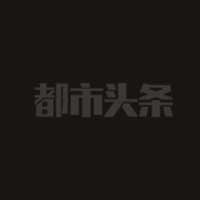
第三十八章
上德不德,是以有德;下德不失德,是以无德。上德无为而无以为;下德无为而有以为。上仁为之而无以为;上义为之而有以为。上礼为之而莫之应,则攘臂而扔之。故失道而后德,失德面后仁,失仁而后义,失义而后礼。夫礼者,忠信之薄,而乱之首。前识者,道之华,而愚之始。是以大丈夫处其厚,不居其薄;处其实,不居其华。故去彼取此。
Chapter 38
The supreme virtue is beyond virtue, and is virtuous; common virtue stays within virtue, and in fact nonvirtuous. Supreme virtue follows nature with no intention to act virtuous, and common virtue follows nature with intention to act virtuous. Supreme kindness is unnatural but has no intention to act kind, supreme righteousness is unnatural and has intention to act right. Supreme ritual is unnatural and intends to force others against their willingness. Hence, loss of Tao results in virtue, loss of virtue results in kindness, loss of kindness results in righteousness, and loss of righteousness results in ritual. So ritual is due to lack of trustworthiness, and is the beginning of all disasters. Hence, those proclaimed prophets possess only superficial knowledges of Tao, and foster only foolishness. So a real man should maintain honest and substantial, avoids vanity and superficiality, and understands what to accept and reject.
第三十九章
昔之得一者,天得一以清;地得一以宁;神得一以灵;谷得一以盈,万物得一以生;候王得一以为天一正。其致之也,谓天无以清,将恐裂;地无以宁,将恐废;神无以灵,将恐歇;谷无以盈,将恐竭;万物无以生,将恐灭;候王无以正,将恐蹶。故贵以贱为本,高以下为基。是以候王自称孤、寡、不谷。此非以贱为本邪?非乎?故至誉无誉。是故不欲琭琭如玉,珞珞如石。
Chapter 39
Since ancient time, Tao was received by many. Then heaven becomes clear, earth becomes serene, spirits become efficacious, rivers become full, everything becomes lively, and kingdoms become fairly governed. On the other hand, qthe heaven would collapse if unclear, the earth would be deserted if chaotic, the spirits would vanish if inefficacious, rivers would dry up if unfilled, and all things would perish if lifeless. Rulers would be overthrown if unfair. Hence nobility is rooted in poverty, highs are based on lows. A king in fact addresses himself as "the loneliness, the solitary, the unkindness". This is in fact referring to the humbleness, isn’t it? Hence, the highest honor needs no praises. It's better to be a solid stone than a pretty jade.
第四十章
反者道之动,弱者道之用。天下万物生于有,有生于无。
Chapter 40
The Tao moves in a cyclical fashion, whose impact is soft and subtle. Everything was born from visible materials, which in turn were made of invisible ones.
第四十一章
上士闻道,勤而行之;中士闻道,若存若亡;下士闻道,大笑之。不笑不足以为道。故建言有之:明道若昧,进道若退,夷道若纇。上德若谷;大白若辱;广德若不足;建德若偷;质真若渝。大白若辱,大方无隅;大器晚成;大音希声;大象无形;道隐无名。夫唯道,善贷且成。
Chapter 41
Upon hearing the Tao, wise men will practice diligently, ordinary men may be doubtful, and foolish men would ridicule. No ridicules, nonetheless no Tao. As in an old saying, a bright path may feel dark, a way forward may feel backwards, a flat road may feel bumpy, a high virtue may feel like a valley, a broad virtue may seem deficient, a strong virtue may seem idle, a simplicity may seem blank. A pure object may be blemished, a perfect square may have no corners, a great talent may arrive late, a loud sound may appear soundless, an impressive image may be shapeless. The Tao is hidden without a name. Only with the Tao, everything begins and ends orderly.